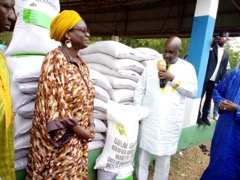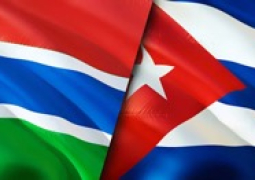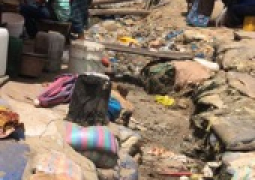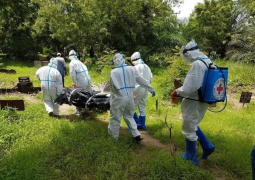
The consignment of high quality certified seeds will be distributed amongst thousands of smallholder farmers across the country.
The GIRAV project procured the 50MT maize worth D4,028,000 from Senegal whilst the 180 MT of rice worth D9million was locally sourced from Maruo Farms, amounting to D13 million in totality.
Hon. Sabally said the procurement and subsequent handing over of the inputs is not only relevant to today’s global agriculture and rural development challenges but will attune his sector’s development.
Hon. Sabally pointed out that the handing over of the certified rice and maize seeds to farmers across the country fit quite well into his sector’s transformation agenda as well as modernisation vision.
He revealed that the certified maize seeds will be introduced in the 2022 cropping season package with the sole aim of meeting the gap that is currently facing the country’s poultry feed industries and other players along the other segment of the poultry value chain.
Morro Manga, director general of National Seed Secretariat commended the World Bank through the GIRAV project in the procurement of the most important input in agriculture.
He said the quantitative availability of quality seeds of improved cultivars is considered crucial for realising productivity and adoption of cultivars in different agro-climate conditions.
Abdoulie Touray, CPCU project coordinator, said the approval of the GIRAV project by World Bank Group was premised on the low commercialisation of agriculture where 62% of farm households produce only for self-consumption.
He pointed out that 34% cultivate for both self-consumption and commercial scale with only 4% cultivating purely for commercial scale.
According to him, to reverse this worrying trend calls for concerted efforts ranging from Government, private sector and traditional development partners.
The World Bank has provided a grant of 40 million US Dollars to The Gambia to fund the five-year project which aims to support agricultural value chain development and thus help the country move from subsistence to a more productive, inclusive, resilient, sustainable and market-oriented agriculture.




